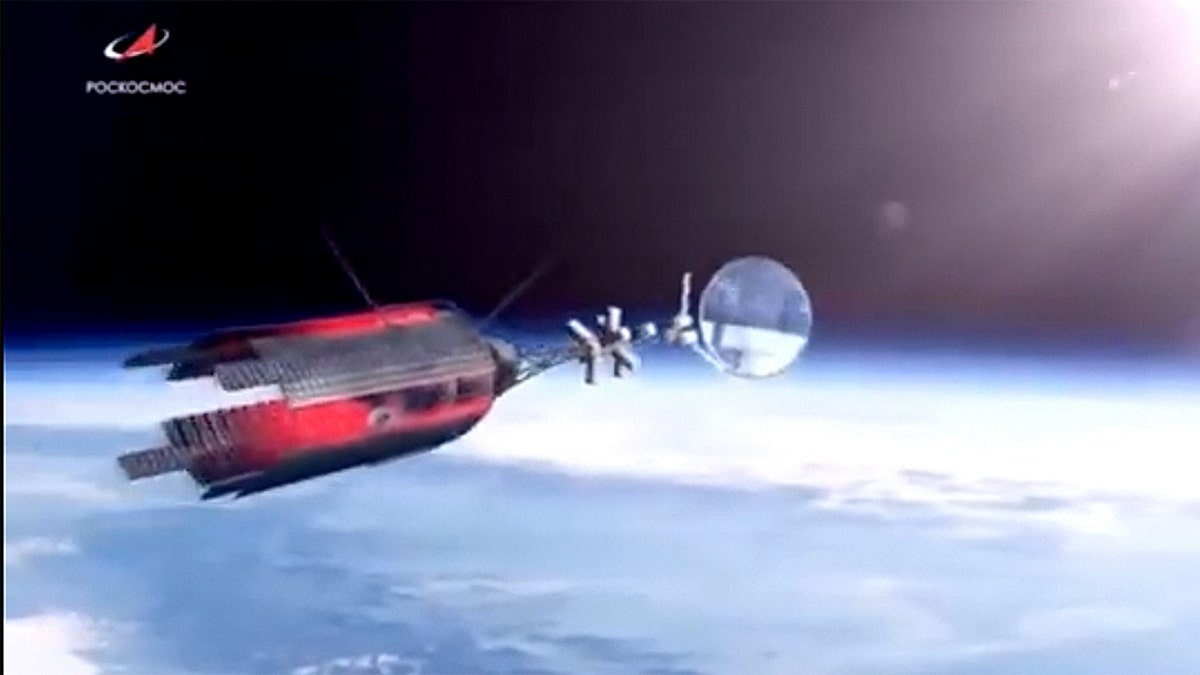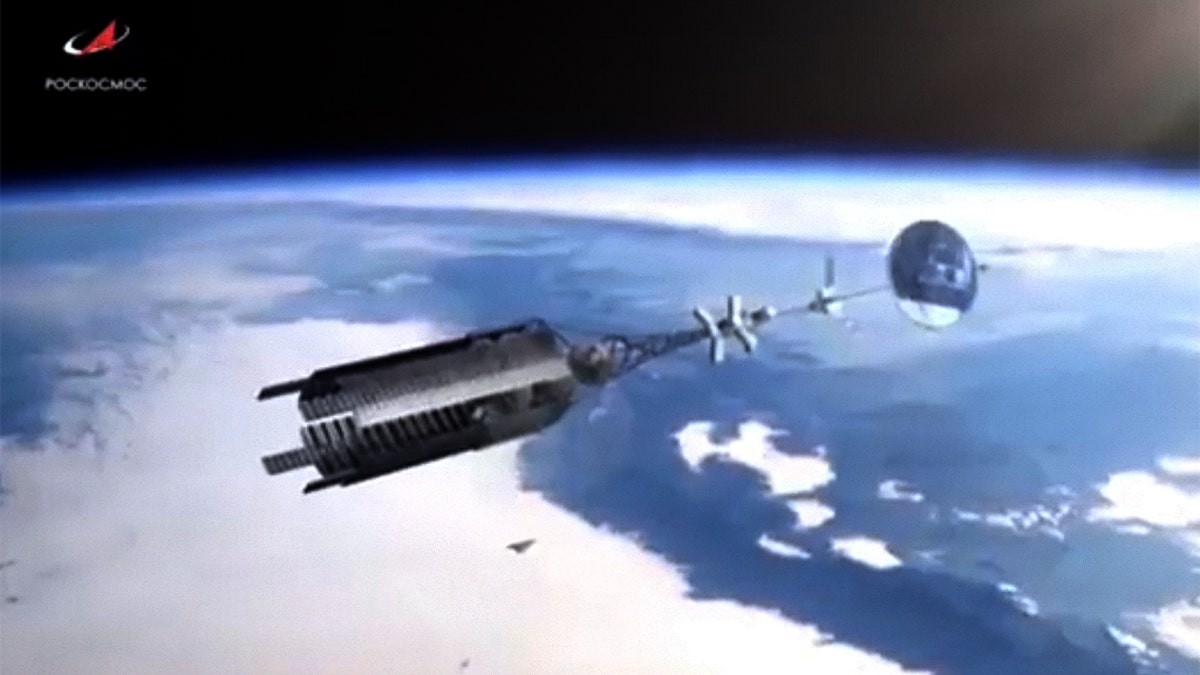
(Credit: Roscosmos)
Russia has revealed a "spacecraft of the future" that could one day put humans on Mars.
Roscosmos showed off concept designs for the sci-fi spacecraft – but failed to say exactly when it would launch.
The spaceship is currently in development at Russia's Keldysh Research Centre, which is racing to create the nuclear propulsion engine.
CLICK HERE FOR MORE FROM THE SUN
"Today, the Keldysh Centre is working on the development of a spacecraft equipped with more powerful engines – a new class of nuclear power units, which do not need either the sunlight or solar batteries for operation," said a spokesperson for Roscosmos.
Nuclear space travel could revolutionize the quest to hop between planets in our solar system.
Space scientists currently struggle with current methods of propulsion, like chemical propellants or low-power electric engines that rely on solar batteries.
These methods of space travel are slow, which creates problems for astronauts on board the craft.
"A person should not spend more than a year or two in space," said Vladimir Koshlakov, who heads up the Keldysh Centre.
"Nuclear-powered spacecraft will allow a relatively fast journey, and, most importantly, a return flight.
"This technology has special significant for interplanetary flights and research of far planets."

(Credit: Roscosmos)
According to Russia's TASS news agency, Koshlakov believes that a flight to Mars using a nuclear propulsion engine is "technically feasible in the near future".
The space expert reckons it could take just over half a year for humans to travel to Mars using the nuclear system.
"[The journey] to the Moon will last several days, yes, while a flight to Mars will last about seven or eight months," said Koshlakov, speaking to the Rossiiskaya Gazeta.
Roscosmos has already been testing ground trials for the engine's cooling system, which are believed to have been a success.
And the space agency also has plans to make a prototype of a "megawatt class" nuclear engine, which would be used for "flights into deep space."
This isn't the first time Russia has experimented with nuclear technology for space travel.
Between 1970 and 1988, the Soviet Union launched 32 spacecraft with thermoelectric nuclear power reactors on board.
And Russia has been testing nuclear rocket engines since the sixties.
This story originally appeared in The Sun.
